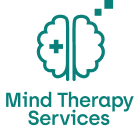
FAQ
Generally Asked
Questions.
+ What is counseling? + -
We use different terms such as therapy counseling, psychotherapy, but the major theme is the same; all are focused on your mental wellbeing. If we have to travel from place A to B, walking gets you to the destination but driving is easier. Counseling is that navigator that helps you drive to your destination easily and smoothly.
+ When should I see a therapist? + -
We have to understand that self care is a necessity and mental self care is often the one that is undervalued and neglected. That is the area that talks about the need for therapy. The need to see a therapist can be different for different people. Grief, trauma, stress, relationship issues, self esteem and many more. Some of us have some unresolved past that haunts us, some of us have gone through loss of loved ones, death or breakups, some have been overwhelmed with the crisis in life, financial, relationship issues and so on. We often try to distract ourselves, deny , or try to numb the crisis in unhealthy ways. A therapist stands as a guide and a bridge to cross the road.
+ WHAT WILL HAPPEN AT MY FIRST APPOINTMENT? + -
The first session is an open environment for us to know about each other and plan about the sessions. I will gather information about you through psychosocial assessment about your present, past and other personal concerns if you are comfortable to share. After understanding the concerns, we make treatment plans and ways to deal with the concerns that you have.
For some reasons you do not want to continue the further sessions after the first one, I respect your decision and we can discontinue the treatment
+ HOW OFTEN DO I NEED TO COME SEE YOU? + -
On average, the sessions are conducted once a week and for 8 to 12 sessions. You can terminate the session earlier if we meet the goal early on.
+ IS THIS CONFIDENTIAL? + -
Yes, the sessions as well as the topics that are discussed in the sessions are confidential and we do not disclose those information unless the court mandates us, or there is immediate danger to self and others.
+ I'VE NEVER DONE THERAPY. HOW DO I KNOW IT WILL WORK FOR ME? + HOW DO I FIND THE RIGHT THERAPIST? + -
One of the first aspects of finding the right therapist is for you to feel comfortable with the therapist and be able to trust the therapy process. For some, it takes time to open up and that’s fine. The first step is finding that connection, setting therapeutic alliance and increased trust and comfort.
Also, therapy is a mutual process, and the progress of the session also depends upon the client putting time, energy and motivation for change. The progresses ,many times, will not be distinctly visible .It is a slow and gradual process of healing, and it can happen when you are self reflecting, challenging yourself, when you are in session or any other situations
+ ARE YOU GOING TO DIAGNOSE ME OR MAKE ME TAKE MEDICATION? + -
As a therapist, I will be able to provide you with the diagnosis you under the DSM. However, as a therapist, we are not allowed to prescribe medications.
the book
COUNSELING/THERAPY VS PSYCHIATRIC HELP (LPC/LMSW VS PSYCHIATRISTS)
One of the confusions that we have is do I need to take meds to get better and if so, will you prescribe me one. We, as a therapist, specialize in working with you using talk therapy instead of medication. Psychiatrists prescribe medication for situations and clients that we cannot handle in therapy alone. Ideally, a mixture of both meds and therapy is great. Also, we have the misconception that if I am seeking therapy help, I am crazy. Psychiatric treatment is usually done for more serious mental health situations and psychological therapy is a wide spectrum from daily life issues to severe crises in your life.

